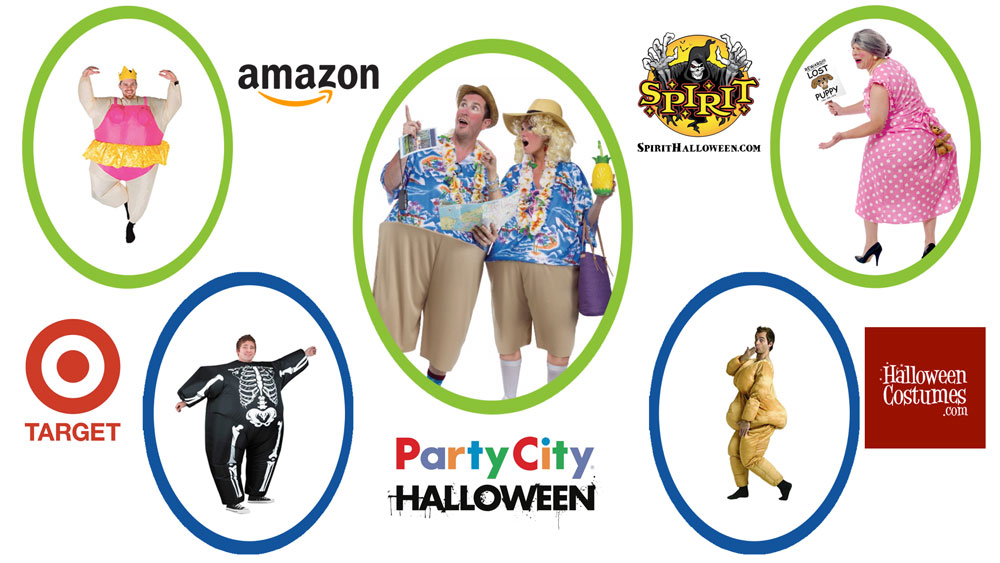Halloween costumes come in all shapes and sizes. Children love them and adults love them. We even put them on our pets! Halloween costumes are as different as the people who wear them, but think about this:
Are we really looking at what Halloween costumes are saying?
Halloween “Fat Costumes”
This example might make you think. Many retailers sell Halloween “fat costumes.” These costumes are made to look like a specific body type that is commonly associated with obesity.
Usually they are sold as a “joke.” They are often advertised on a costume model making a silly face or doing something to show a belief about people with obesity. For example, the model might be carrying fast food or appear to have “lost something” because their size prevents them from seeing around them.
Other Halloween “fat costumes” take an otherwise normal costume, like a skeleton or ballerina, but make it larger to resemble someone heavier. Many people find this amusing. In reality, this is weight stigma.
Not Innocent by Any Means
If you find yourself skeptical about stigma in Halloween “fat costumes,” remember that people mock other people with obesity every day:
- At their jobs or in school
- In healthcare settings
- By family and friends
- In the media
Halloween “fat costumes” are saying something hurtful and untrue about people with obesity – that they are:
- Lazy
- Obsessed with food
- Laughable
- Lacking willpower
- Less than
However, obesity is a serious disease. It can’t be simplified by too much food and not enough exercise. Many factors may be at play in a person who is struggling with their weight such as their genes, their biology and their environment. Obesity can also affect more than 50 related health conditions including:
- Type 2 diabetes
- Heart disease
- High blood pressure
- Stroke
- Some cancers
To say that a person with obesity is at fault if they are struggling is a statement made from judgement, stigma and information that simply isn’t accurate.
What other diseases do you know of that end up as costumes? Have you ever seen a costume about cancer or diabetes? No. You would find them cruel. How is this any different from obesity? Then there is this obvious fact: no costume out there made to look like a person with obesity will show the person wearing it what it is really like to struggle with weight every day.
All of this information is important for one reason. “Fat costumes” can affect real people with real and painful experiences. They can lead to:
- Depression and anxiety
- Trouble focusing at work or school
- Social isolation
- Unhealthy attempts at weight control
- Poor self-esteem and body image
Act Now and Stand-up to Stigma
Using the OAC Action Center, send a letter to major retailers and urge them to stop selling these costumes before Halloween. The OAC has already written this letter for you. Just include your information and customize the letter if you would like. Then click “send” and your letter will go to Amazon, Target, Spirit Halloween, Party City and HalloweenCostumes.com.

